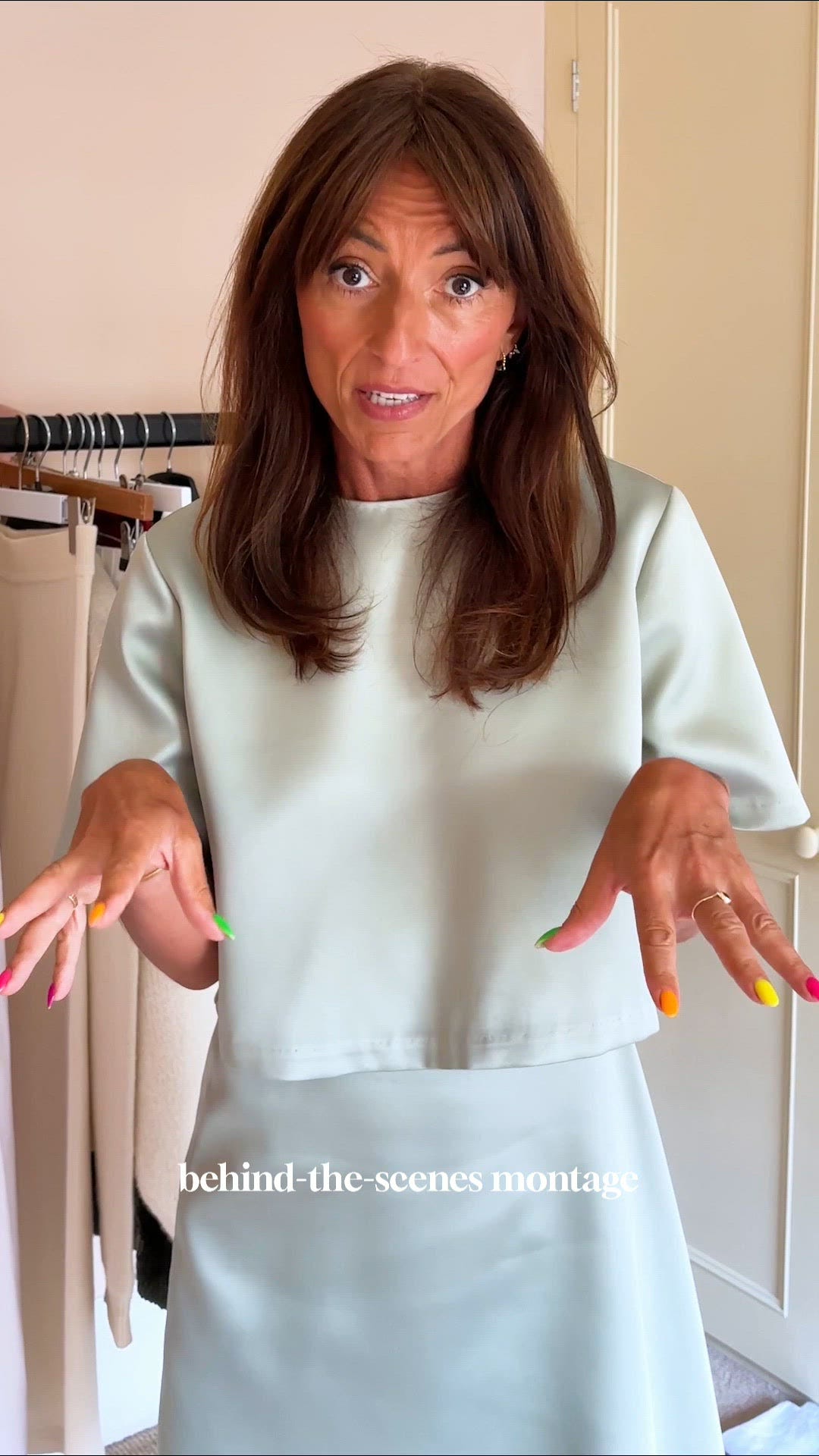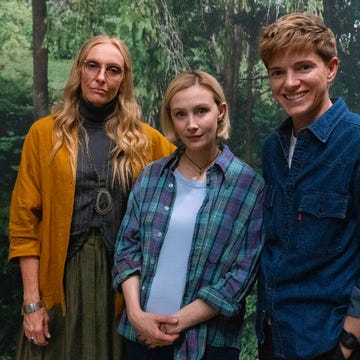My life with Margaret began, like any good love story, with a series of false starts. I’d first heard her name in 1951, when our respective boys’ and girls’ schools were given the day off to watch a landmark football match between Arsenal and our local team, Carlisle United. Word spread about a student called Margaret Forster who had started a petition arguing that education was much more important than a stupid sports game. I thought she must be potty! But I heard people talk about how brilliantly clever and talented Margaret was, so I asked her to dance at the sixth form social. ‘I hate dancing,’ she said.
‘That wasn’t my question, pet...’ I began, but she was gone. A year later, I got a holiday job as a bus conductor while home from Durham University. One day, she got on my bus. ‘Don’t worry, you don’t have to pay,’ I told her. ‘I don’t need anything free from you,’ she replied, thrusting her fare into my hand.
Finally, I had a stroke of luck when I spotted her and a few others I knew in the queue for the cinema. ‘Thanks for keeping my place,’ I announced loudly, sitting behind them during the film and making witty comments. ‘Can I walk you home?’ I asked Margaret afterwards, and was amazed when she said yes. As we walked, she told me she’d just won scholarships to Oxford and Cambridge. She’d never had a boyfriend and I think that day she was feeling demob-happy.
What to read next
We talked the whole way home and didn’t stop talking for the next 55 years. Of course, when Margaret went to Oxford, I feared she’d be swept off her feet by some smooth-talking, floppy- haired public schoolboy, but I needn’t have worried. I’d hitchhike down from Durham to see her at the women’s college, where there was a strict 8pm chuck-out time for male visitors.
On the last day of Margaret’s exams, 11 June 1960, we got married and moved into a flat in Hampstead, London. Margaret began working as a supply teacher and I was a reporter on The Sunday Times. We didn’t have much money, but after 18 months, we managed to save a £1,500 deposit towards a rundown Victorian house with a sitting tenant – our own home.
We went on to have three children, Caitlin, Jake and Flora, and Margaret became a successful novelist. One of her first novels, Georgy Girl, was adapted into a popular film. I was so proud. Margaret would write from home during the day. As I got back from work, she would ask about my day, to feel involved in my wider world. It was a daily routine in the happy life we’d built together.
Then, in 1974, Margaret was diagnosed with breast cancer. She had a double mastectomy and was bedridden for nearly six months with treatment. She recovered but she was always aware that the cancer could return. ‘Let’s not ruin now worrying about what might or might not happen in the future; let’s enjoy our time,’ I’d say. So we did.
When the children left home, we spent our summers in the Lake District or at a holiday home in Portugal. But, in 2007, Margaret’s cancer came back and by 2014, it had spread. Endless treatments and drugs followed until eventually she became housebound. She’d always loved walking on the heath and I suggested having a summerhouse at the end of the garden as a target to walk to. She argued that we weren’t having any more work done on the house or garden, saying: ‘Over my dead body are we building a summerhouse.’
She eventually moved into a Marie Curie home for terminal patients, where she could get the care she needed. I missed her terribly and had no idea what to do without her in the house. I told her I’d bought a fillet steak but didn’t know how to cook it. ‘Too late,’ she laughed. ‘You should have asked me earlier.’ I admitted I was lonely and worried about what I’d do without her when she was gone. ‘I don’t worry about you,’ she told me with a smile. ‘You’ll be fine.’
On 7 February 2016, I said goodbye for the last time. I laid half of her ashes to rest in a churchyard near Loweswater lake, where we’d spent so many happy years, and the other half beneath the summerhouse I built after she died – our final shared joke.
Although Margaret was gone, I’d still talk to her and update her about my day, just as I’d always done. I was sure I could still see her, sitting on the sofa, reading a novel.
There was so much I wanted to tell her: what the children and grandchildren were doing, how the tortoise was, which university friends had passed away. And so, four years ago, I began to write Margaret letters every day. I didn’t want them to feel sad or soppy, so I’d begin each one with an expression from our shared childhood in the North: ‘Hiya, pet...’ or ‘Alright, lass...’ I really began to believe she was receiving my letters and I’d finish each day smiling at the thought of her reading them and laughing.
I told her everything – even that, after a few years, I’d been considering finding a female companion to go on holidays and days out with. I shared my exhausting attempts at online dating with her and then about how I met Miranda, an artist from the Isle of Wight, who I’m still happily with. I gave Margaret all the gossip, but told her not to spread it around heaven because we never knew who might be listening.
There were some things, though, that I didn’t tell her about. I feel it was a good thing she didn’t live to see the pandemic or the war in Ukraine, but she would have loved to have witnessed the Lionesses winning the Euros. In my head, it’s as though she’s still here. I’m 90 on my next birthday, so I expect I’ll be seeing her soon enough. I’ll still have so much to tell her when we meet again.
Letters To Margaret: Confessions To My Late Wife (Bloomsbury) by Hunter Davies is out in paperback 14 August














